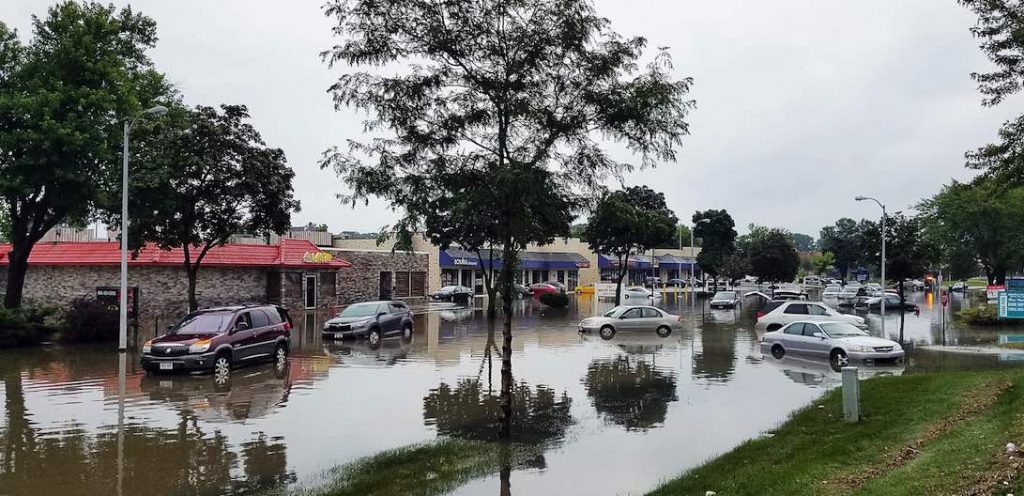Water damage claims are one of the most common types of insurance claims.
Often this is due to burst pipes or worn out hoses and membranes, especially when no one is home to turn off the water supply.
Damage from water often requires our clients to vacate the premises while repairs are being conducted, causing significant disruption.
We understand the frustration that comes with water damage and we want to help you avoid similar incidents in the future.
What can you do?
- A tiled shower recess that is over 25 years old the membrane may need to be reapplied.
- If you have a tiled roof, a professional should inspect your roof and replace any cracked tiles or re-align slipped tiles on a regular basis.
- Never flush wipes, sanitary products or other foreign objects down the toilet.
- Check faucets and appliances hoses regularly for cracks and leaks.
- Turn off appliances such as fridges and washing machines if you are going to be away for a while.
- Check your gutters for blockages
- Get in early. Water damage insurance claims will exacerbate if left unattended. The sooner the damage is fixed the lower the claim expense will be.
Prevent water leakage:
There are two options to water leak detection that can significantly reduce the escape of water; water sensors and a water shut-off device.
Water sensors are designed to sense water and send an alert, and are ideally suited to high risk appliances such as plumbed fridges, dishwashers and washing machines. They can send an alert to your phone so that you can take appropriate action.
Water shut-off devices constantly monitor the flow of water and operate on time based parameters, shutting off the water at the mains once water flow reaches the pre-set time. These systems are fully programmable and have home and away modes to maximise protection when the building is unattended.
The Benefits:

- Minimises water damage to property and contents caused by water leaks and faulty plumbing/appliances
- Avoids the trauma and inconvenience of a major water damage loss
- Provides peace of mind while your primary home or holiday home is unattended
- Prevents excess water bills caused by previously unknown leaks
- Eliminates water wastage and raises water consumption awareness
The impact of a recall has been felt by the smallest companies right through to the largest brands in Australia.
In fact, there were a total of 626 recalls between 2008 and 2017. These affected nearly every type of food industry including dairy, meat, vegetables, fruits, seafood, bottled water– even beer.
Recalls cause significant impact on a business as costs can run into the millions. This can even occur from products with a reasonably low turnover.
The reality is that recalls can be expensive. And the two major issues companies face after recalls are a damaged reputation followed by a hit to the bottom line.
What causes recalls?
There are a wide range of reasons behind recalls including microbiological contamination, foreign matter, biotoxins, chemical contaminants, mislabeling, undeclared allergens, and the presence of disease. Commonly, these are out of the control of the manufacturer.
Food Standards Australia New Zealand reports significant growth in recalls as a result of undeclared allergens like peanuts, milk, eggs, fish, shellfish, wheat, tree nuts and soybeans. In recent years, the frequency has tripled from 10 declared recalls in 2008 to 34 in 2017, accounting for 48% of all recalls in the last three years.
These claims often arise from contaminated ingredients being supplied to manufacturers, only to be discovered when a third party has tested the products or someone has fallen ill.
What allergens are causing recalls? From 2007 to 2016 Food Standards Australia New Zealand report dairy was the most common cause, followed by peanuts, wheat/gluten and finally tree nuts.
Real average: 63 recalls per year
Over the past 10 years, there have been 626 recalls of food and beverage products in Australia - making the average about 63 per year. Over the past three years, three quarters of recalls were caused by undeclared allergens, microbial contamination and foreign matter.
Undeclared allergens are risky business
A significant change has been the rise in recalls attributed to allergens, with the annual number rising from 10 in 2008 to 34 in 2017. Alarmingly, nearly half of all recalls were attributed to allergens in the last three years alone.
What allergens are causing recalls?
From 2007 to 2016 dairy was the most common cause, followed by peanuts, wheat/gluten and finally tree nuts.
Allergen recalls are predominately coming from processed foods, confectionary and baked foods.
This is no surprise considering the large number of ingredients in processed products. The more ingredients, the harder it is to ensure they are free from potential allergens.
Contamination is the next threat

Microbiological contamination is the second largest cause of recalls. The most common of these contaminations are Listeria monocytogenes, Salmonella and Escherichia coli (E.coli) – combined these account for 81% of all microbiological recalls.
Given the right conditions, millions of bacteria can grow on common, everyday foods. These conditions are:
- Time – a single bacterium can multiply to over two million in just seven hours
- Warmth – the ‘danger zone’ temperatures at which bacteria grow best are between 5ºC and 63ºC
- Food – like any other living things, germs need food to grow. High-risk foods that bacteria love best include dairy products, meat, poultry, fish and shellfish
- Water – bacteria need moisture to grow. This includes moisture in ‘wet’ foods such as juicy meats, sandwich fillings, soups, sauces and dressings.
The end of year is a time for fun and celebration, what is known as the ‘silly season’ can also pose several risks for business owners. It is important to stop and think about the implications of a serious incident occurring in your facility. Below are a few of Midland Insurance Brokers’ best tips on how you can avoid some of festive season’s risks and don’t forget to use the TO DO list to ensure you are fully prepared.
TIP 1
There is a rise in workplace accidents during the Christmas period as many businesses don’t take proper safety precautions in a rush to meet deadlines. Whatever your deadline is, the cost of a workplace accident is far greater. During this time, it is important to uphold good housekeeping including checking more regularly for hazards.
TIP 2
The festive season usually brings with it an increase in crime, particularly burglary. It is a good idea to heighten your security measures - Check that security alarms, lighting and CCTV are operating properly and that sensors are not obscured.
TIP 3
In Australia, the festive season also happens to be smack-bang in the middle of storm and bushfire season. The damage a large-scale thunder storm, cyclone or bushfire can cause is difficult to deal with at the best of times, but during the Christmas period impact of a natural disaster can be much more significant It’s always advisable to ensure your insurance cover is up to date and factors in the cost of your business being disrupted as well as the cost of replacing physical items.
TIP 4
Most businesses will host some form of end-of-year party. While this is a great time to celebrate your team’s hard work, it can also be a time when things can go very wrong, particularly with alcohol involved. Normal occupational health and safety rules still apply so ensure the service of alcohol policy is strictly enforced and provide transport so your staff can get home safely.

TIP 5
The rush to deliver on time coupled with employees taking leave during the New Year period means many businesses turn to temporary staff to help out. As with any new employee, temporary staff will likely be unfamiliar with your business processes or safety practices, which could lead to mishaps. Make sure your temporary staff are performing tasks that match their skills and experience and provide any new employee with a proper workplace induction.




